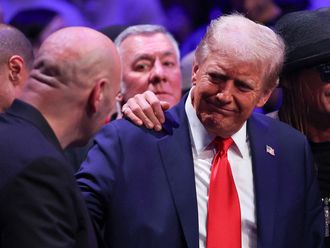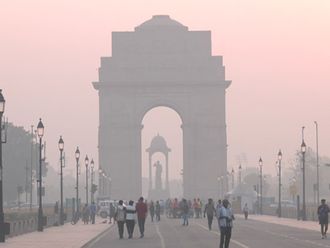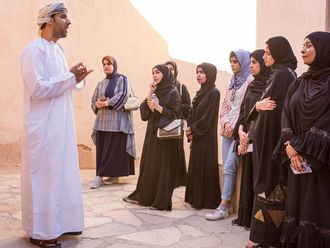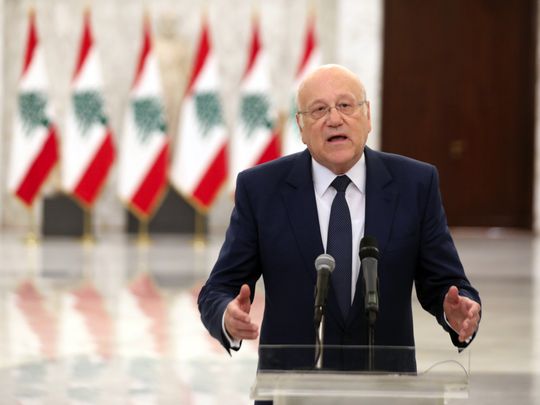
On Monday, Lebanese MPs designated ex-premier Najib Mikati to form a government, nine days after Saad Al Hariri announced that he would be unable to form one.
It took Hariri nine months to walk out on cabinet formation and Mikati might take as much—if not longer—since there is no constitutional deadline that binds him.
It won’t be an easy task as he faces a crumbling economy and a sharply divided political class, topped with the political ambitions of Gibran Basil, son-in-law of President Michel Aoun, who has his eyes set on becoming president in October 2022.
The resignation of Saad Al Hariri as prime minister designate on July 15 left Lebanon in political paralysis. As the political class traded accusations on who is to blame for the country’s collapse, Lebanon continued to slip into chaos and lawlessness.
Hariri’s resignation further devaluated the Lebanese pound, now trading at 20-21,000 LP to the US dollar, the highest rate ever since the end of the civil war. The country is facing a chronic fuel shortage and businesses are terminating their operations, citing lack of purchasing power, breakdown of security, and no electricity.
As establishments close down, young Lebanese are voting with their feet and leaving the country in dangerously large numbers — a brain drain that may eventually destroy what remains of the country.
The longer it takes for Mikati to form a government, the worse all these problems will become. No government means no progress on talks with the International Monetary Fund (IMF), which Lebanon started one year ago, with the hope of securing a $9-10 billion loan to save its cash-strapped economy.
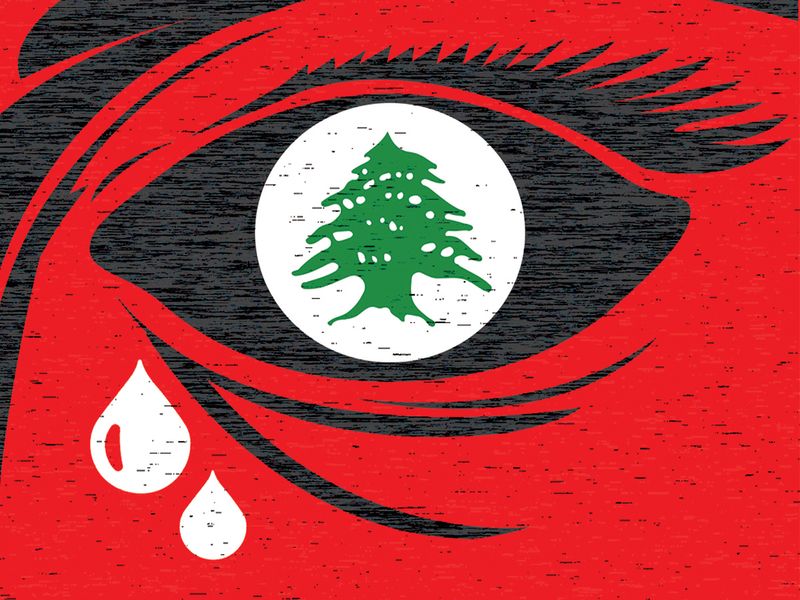
Gibran Basil’s impossible conditions
The reasons for Hariri’s resignation are exactly the same as they were when he was first named to the job in November 2020. President Michel Aoun and his son-in-law set forth a series of demands that Hariri was unable to accommodate.
They included the right to name all Christian ministers in the new cabinet, along with a blocking majority and all sovereignty posts including defence, interior, justice, and foreign affairs. These conditions remain on the table for whoever succeeds Hariri as prime minister designate.
Lebanon’s next cabinet, when/if formed, will be especially important for Gibran Basil and the Free Patriotic Movement (FPM) because it will probably be the last in the Aoun era, which ends in October 2022.
It will be charged with supervising the upcoming parliamentary elections of May 2022, which Basil wants to postpone, and the presidential ones of October 2022, where he hopes to replace his octogenarian father-in-law.
The FPM want the upcoming prime minister to help them abort the parliamentary elections, citing lack of funds and security, fearing that if a real vote takes place with international monitors, then they would lose their current bloc of 29 MPs. They are badly in need of that parliamentary majority in order to vote for Basil in the October elections.
Fearing that Hariri would never approve of Basil’s ambition, they worked hard at preventing him from becoming premier and replacing him with someone who would cooperate with their ambitions. Will Najib Mikati be that someone, or will he fail like Hariri?
The Prime Minister-designate
A Sunni notable and tycoon, Mikati is a two-time former premier, restored to the limelight via Parliament Speaker Nabih Berri and an assortment of former premiers that includes Fouad Siniora, Tammam Salam, and Hariri himself. Mikati is acceptable to all regional players, including Saudi Arabia, Syria, and Iran.
The FPM is reluctant to work with him, however, since he would be too powerful and too independent for their taste. Gibran Bassil would have a hard time controlling him or influencing his decision when it is time to elect a new president.
They have tentatively accepted him, however, hoping that this will score points within the Sunni Muslim community, who are furious with Aoun and Basil for destroying Hariri’s cabinet. Naming a premier is one thing but going through the difficult process of forming a cabinet is totally different.
If he doesn’t abide by Basil’s dictates, the Aounists can always obstruct his path with unrealistic conditions, just like he did with Hariri, forcing him to eventually step down.
Mikati’s name surfaced earlier in the summer when he hosted David Hale of the US Department of State during a visit to Beirut. After Hariri’s resignation, he initially turned down the nomination but has recently backtracked his position, putting forth a condition for accepting office, that his government is a long-term one and not just a caretaker cabinet to supervise the upcoming parliamentary elections next May.
This means that he wants to stay in power for the presidential elections and beyond, which Basil may not accept.
If Najib Mikati fails
If Mikati fails to form a government, the second candidate for Basil and Aoun would be Faisal Karami, a politician put forth by Hezbollah and the Marada Party of Suleiman Frangieh. A Sunni, he hails from a prominent hereditary political family with his father Omar, uncle Rashid, and grandfather Abdulhamid having all served as prime ministers of Lebanon since the 1940s.
He himself has little political experience, however, having served once as cabinet minister under Mikati in 2011-2014. Hariri has vetoed his nomination, considering him too close to the Syrians and too weak to protect the post of prime minister (a historic right for Sunni Muslims) from Aounist hegemony.
A third candidate would be Samir al-Khatib, who was nominated for the job by Hariri two years ago and famously failed to form a cabinet. He is a newcomer to Lebanese politics who never assumed government office in his life.
Khatib is an independent Sunni Muslim who is the executive vice-president of Khatib and Alami, a contracting firm that operates throughout the region, including Syria, Iraq, and Saudi Arabia.
He is well-connected both regionally and internationally but is politically vulnerable, with no parliamentary bloc to support him, no political party, and no hereditary political family to lean on like the Karamis or Hariris.
Basil doesn’t mind him as premier, seeing that he can be controlled. His major obstacle is that he was named to the job by the Hariri team, which makes the Aounists suspicious of him.
The fourth candidate would be Nawaf Salam, supported by Hariri but vetoed by Hezbollah, who consider him pro-American. Salam is scion of a leading Sunni family from Beirut with an impressive CV, first as professor at the American University of Beirut, then ambassador to the UN before becoming a judge at the International Court of Justice.
Fifth and last would be Fouad Makhzoumi, another Sunni Muslim tycoon who currently serves as an independent MP in Lebanon’s parliament. His main asset is that he is rich, capable of attracting funds and negotiating international aid. His weakness is that he has no political party behind or parliamentary bloc, and no political experience. But to Basil this is good since he would be easy to control, just like Faisal Karami.
Will Basil have his way?
But if Basil were to have his way, he would keep the caretaker premier Hassan Diab at his job for an indefinite period, knowing that Diab would never cross him, neither with parliamentary elections nor with presidential ones.
Hassan Diab was parachuted into the job of prime minister by Gibran Basil in early 2020, owing his political future — and entire legacy — to the Aounists.
If Mikati’s cabinet formation talks take another nine months and then ends in failure (which is very possible), then Diab will still be at his post next May. He would gladly postpone them, for Basil’s sake. And if he happens to be still be around by October 2022, which is also probable, then he would not mind Basil’s bid for president.
Sami Moubayed is a Syrian historian and former Carnegie scholar. He is also author of Under the Black Flag: At the frontier of the New Jihad


